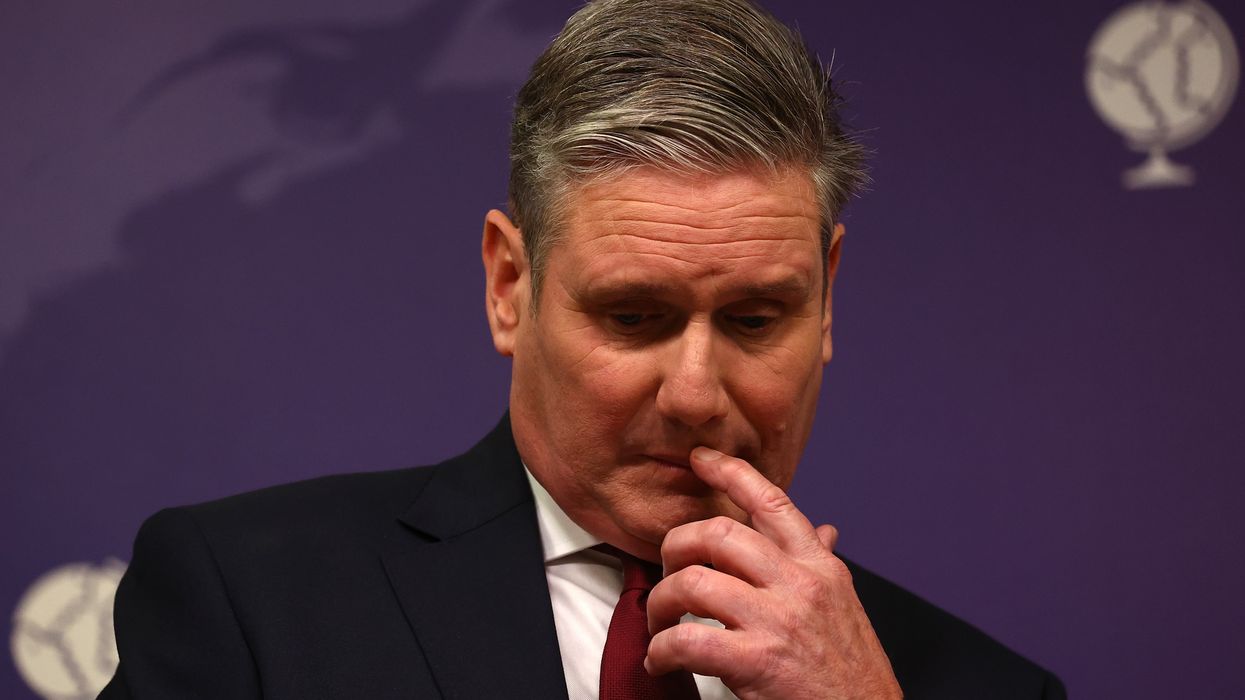Starmer risks dividing Labour even more in major gamble - Analysis by Christopher Hope

Starmer risks dividing Labour even more in major gamble - Analysis by Christopher Hope
|Getty Images

Labour MPs are returning to the House of Commons tomorrow after a 10-day break in which many of them will have been placed under immense pressure by their supporters over Starmer's position
Don't Miss
Most Read
Sir Keir Starmer knows that to win back the millions of voters who deserted the Labour party at the 2019 general election he has to regain their trust. And this starts with getting the calls right on major issues of foreign policy and national security.
This has - so far meant – the Labour leader backing the Government’s support for Ukraine in its war with Russia, and for Israel’s right to defend itself in its war with Hamas.
Starmer appears to have learned from the mistakes of his predecessor Jeremy Corbyn, notably over the Salisbury poisonings in 2017 when he questioned whether Russia was behind the attack.
Starmer may too have been influenced by the corporate memory in the leader’s office of when Ed Miliband was leader in 2013 to oppose UK military involvement in Syria, which is said to have infuriated Barack Obama's White House (Obama's vice president was Joe Biden).
WATCH HERE: Protester storms stage during Sir Keir Starmer's speech
There is talk in Westminster of Starmer phoning Sunak shortly after he became PM, pledging to back him on national security issues, although No10 says it does not "recognise" this, while Starmer's team will not comment when I approached them.
I think this explains why Starmer has been so quick to fall in line behind Sunak's lead on the Israeli-Hamas war, notably supporting the UK's backing for a pause in hostilities but significantly not a ceasefire.
Sunak was pressed on a visit to a gas plant in North Norfolk today to explain the difference by reporters. He said that "a pause" meant allowing some time for aid to get into to Gaza, and British nationals to get out.
This is a line which Sunak can walk as most of his MPs support it. For Starmer, it is more difficult because of Labour's reliance on support in constituencies with large Palestinian support.
POLITICS LATEST:

Prime Minister Rishi Sunak with National Gas chief executive Jon Buttterworth during a visit to the Bacton Gas Terminal in north Norfolk
|PA
Already support for the Labour leader is starting to fray with 10 Labour councillors in Burnley resigning in protest over the weekend, and reports that well over a dozen frontbenchers in the Parliamentary Labour Party are backing a ceasefire.
Starmer has said that his focus was on stopping the suffering in Gaza, not on the "individual positions" of party members. This is all very well, but Labour MPs are returning to the House of Commons tomorrow after a 10-day break in which many of them will have been placed under immense pressure by their supporters over Starmer's position.
The talk now is of an SNP-organised Opposition Day debate in the Commons, or an amendment to a debate during the King's Speech, to force a vote on whether to back a ceasefire or not.
Either will raise the simmering tensions in the Labour Party to boiling point with the party's MPs being forced to make clear where they stand in black and white.

Labour MPs are returning to the House of Commons tomorrow after a 10-day break in which many of them will have been placed under immense pressure by their supporters over Starmer's position
|Getty Images
Starmer's gamble is that his support of Israel will win over enough votes in middle England and among those who deserted Labour in 2019 to be worth the damage to party unity. But the risk is that it will just split his party even more, as the bloodshed mounts in Gaza.
Starmer knows that voters don't like to vote for a divided party. The Labour leader’s position on the Israeli-Hamas war is about to be tested to destruction.










